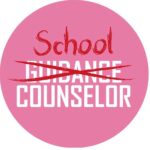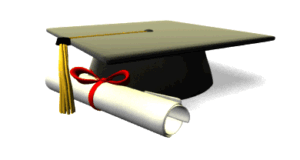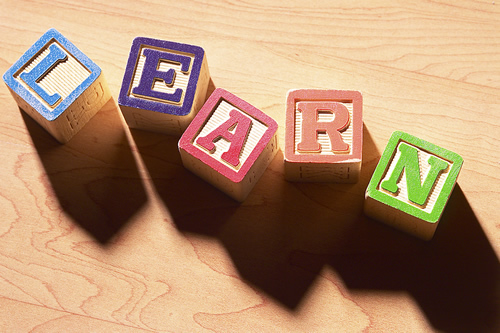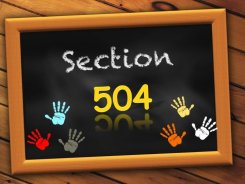High School Counselor
Welcome to Pipestone Area High School!
We are now working our way through Spring semester. Hopefully, warmer weather will arriver sooner than later. We have an open communication policy here at PAHS. Please feel free to reach out to myself, Mrs. Ortman, or any of your child’s teachers.
Parents, thank you for entrusting me to help your child both academically and emotionally as they make their way through high school. It is a pleasure to work with each of your children.
Always stay humble, always stay kind,
Mrs. Dulas 
A website with a wealth of information is provided by the Minnesota State Colleges & Universities: Information Here Information regarding the application process, financial aid, etc. can be found on this website. One can also request information to be mailed directly to one’s home.
Pipestone Area Mission Statement
“The communities of ISD #2689 will be held accountable for the achievement of all learners by developing an educational program of excellence for lifelong learning”
Contact: Ellen Dulas, High School Counselor

Ellen Dulas, M.S.
Licensed School Counselor
Counseling Office
Email ellen.dulas@pas.k12.mn.us
Ph: 507-825-5861 ext. 6090
Ellen Dulas has been employed as a school counselor in Pipestone since 2002. Mrs. Dulas started high school in Gresham, Oregon and graduated from Highland Park High School in Illinois. Her father served in the US Army for 22 years, hence the 2 high schools. She then attended South Dakota State University and earned her Bachelor of Science degree in Early Childhood Education. Later, Mrs. Dulas went back to SDSU and earned her Master of Science degree in School Counseling.
Mrs. Dulas’ professional memberships include the Minnesota School Counselors’ Association (MSCA) and the American School Counselors’ Association (ASCA).
Mrs. Dulas is married to David Dulas, who teaches Chemistry and Physics at Pipestone Area High School. Mr. & Mrs. Dulas have two children, Matthew is a graduate student at the University of Iowa and McKenzie is a senior at MSU – Mankato. Mrs. Dulas loves helping students pursue their dreams and does all that she can to help them.
If you ever feel challenges with your mental health, anxiety or are dealing with substance use, we do have Western Mental Health counselors coming in to meet with students. Here is the link: HERE for QR code
A Counselor is…
A person specially trained to help you realize a student’s full potential as a unique human being. All school counselors have a minimum of a Master’s Degree in counseling and are licensed by the State of Minnesota.
Counselors offer support to…
Examine your personal, social, career and/or academic issues
Clarify your feelings, thoughts and behaviors
Explore alternatives
Make decisions
Goals of counseling…
To provide respectful, meaningful services for every student.
To provide safe, confidential support to all students.
To help you understand and appreciate your uniqueness.
To get along with others and still be your best self.
To enhance skills to promote positive change.
To help every senior graduate and develop a future plan

Parents of Seniors
Our Senior Recognition Program will be held on Friday, May 23, 2025 beginning at 8:30 a.m. in our auditorium.
Young men 18 years of age should register with the Selective Service. This is required to apply for financial aid through the FAFSA. Registration only takes a couple minutes, please CLICK HERE to access the Selective Service website.
| Sometimes parents and students assume four-year college is the best path to success, but some experts say this may not be the case. There are other alternatives to four-year college that can help a student save money and have a fulfilling, successful career. Check out this video. Video Credit goes to American Graduate- https://www.cpb.org/americangraduate |
Financial Aid & FAFSA Guidance
On To College shared their Minnesota Scholarship Guide, to view, please click HERE
College is a big deal that should not be taken lightly. As you start prepping for your academic adventure, amass all the resources you can. Part of your preparation should include University Headquarters Resources for new college students. In these pages, you’ll find a wealth of information that covers a wide range of subjects, such as planning tools, how and where to find scholarships, a transfer guide, how to get into almost any career you can think of, and more. Resources for before & after college
Sometimes parents and students assume four-year is the best plan to success, but some experts say this may not be the case. There are other alternatives to four-year college that can help a student save money & have a fulfilling, successful career. See this video created by American Graduate.
What’s the best path for your child?
20 Best Colleges for Earning Potential
I wanted to provide a link to access the resources that FAFSA provides, as they no longer provide printed resources. I hope you find this information useful on your quest to find financial aid for your student: Excellent Resources for Financial Aid
Do you have questions about the FAFSA? During the month of February Financial Aid Directors are providing parents and seniors with information necessary to complete the FAFSA. Register for a FREE event by the experts
FAFSA Tips: This information was shared with me and I feel it is a great resource for parents when filling out the FAFSA. FAFSA Tips for Parents
A comprehensive guide for students with disabilities. Navigate your journey using these tools & resources
Learn how to pay for college in these 5 steps:
1 Complete the FAFSA www.fafsa.gov
2 Apply for Scholarships
3 Estimate and compare your total college costs.
4 Determine if you need additional money for college
5 Explore additional college financing options.
*TEST DATES FOR 2024-25 (Pipestone offers the test in June)
| Test Date | Registration Deadline | (Late Fee Required) |
| October 26, 2024 | September 20 | October 7 |
| December 14, 2024 | November 8 | November 22 |
| February 8, 2025 | January 3 | January 20 |
TEST FEES
ACT No Writing $69.00
ACT Plus Writing $94.00
Test Change Fee: $25.00
Late Fee: $38.00 (this is in addition to the test fee)
You must register online at: ACT Registration
If your student needs accommodations on the ACT Test, please follow this link for important information: https://www.act.org/content/act/en/products-and-services/the-act/accommodations.html
University HQ is pleased to provide some opportunities for free resources to prepare for the ACT Test. Click HERE to learn more information about ways to prepare for this college entrance test.
The SAT Test is also an option, though most colleges in the Midwest do not require it. To find information about the SAT Test visit: www.collegeboard.com
If your student is planning on attending a two year college, they need to take the Accuplacer Test. Minnesota West offers the Accuplacer multiple dates: www.mnwest.edu You must call their campus to register for this exam at 825-6800.
A useful site for scholarship searches is: Minnesota Career Information System User Name: pahs Password: careers The students are familiar with this website, as we use it in school. You can locate the scholarships under the “Education” tab, then under Financial Aid sort. There are many scholarships available to students.
Useful Websites:
http://www.onlineschools.org/college-test-guide Great resource for standardized test preparation.
www.swmncareers.org Helpful information about careers and hot jobs right here in SW Minnesota!
To view the Minnesota State Colleges and Universities with ease, please go HERE.
www.fastweb.com Excellent resource for scholarships.
Here is a resource that focuses on students that choose to attend college: Student Health Guide for College Students
College Level Examination Program (CLEP) allows students to earn college credit by exam for what they already know by demonstrating college-level achievement. The tests cost $87. Colleges may have different rules about accepting credits for prior learning so students should check with the schools they are considering. For more information on the CLEP program, visit www.collegeboard.com/clep
Great Resource for making sure your student is set for college: www.getready.state.mn.us
FAFSA Deadlines Access the FAFSA Website Here: FAFSA Website
To be considered for federal student aid for the 2022–23 award year, you can complete a Free Application for Federal Student Aid (FAFSA®) form between Oct. 1, 2022, and 11:59 p.m. Central time (CT) on June 30, 2023. Any FAFSA corrections or updates must be submitted by 11:59 p.m. CT on Sept. 9, 2023. However, many states and colleges have earlier deadlines for applying for state and institutional financial aid. Find your state’s deadline. Check with your college or career school about its deadlines. Because of the variation in state and college deadlines, it’s highly recommended that you fill out the FAFSA form as soon as you can after Oct. 1 to ensure that you don’t miss out on available aid.
You can find your state’s deadline at Student Aid Deadlines.
State Deadline:
Minnesota – 30 days after term starts by midnight, Central Time.
College Deadline
Check with the college(s) you are interested in attending. You may also want to ask your college about its definition of an application deadline – whether it is the date the college receives your FAFSA, or the date your FAFSA is processed.
Here is a helpful worksheet to help you collect and organize your parents’ financial information needed for the FAFSA on the Web on how to complete the FAFSA: FAFSA on the Web Worksheet
College Deadline
Check with the college(s) you are interested in attending. You may also want to ask your college about its definition of an application deadline – whether it is the date the college receives your FAFSA, or the date your FAFSA is processed.
However, many states and colleges have earlier deadlines for applying for state and institutional financial aid. You can find your state’s deadline at https://www.fafsa.gov/deadlines. Check with your college about its deadlines.
Because of the variation in state and college deadlines, it is highly recommended that you fill out the FAFSA as soon as you can after January 1 to ensure that you do not miss out on available aid.
Pay close attention to deadlines!
TIP: When you submit your FAFSA, be sure to print out the confirmation page and keep it for your records. It contains a confirmation number with the exact date and time (Central Standard Time) the form was received.
Note: Transactions must be completed and accepted by midnight to meet the deadline. If you wait too long to submit your application and it is rejected, you may miss your school’s deadline.
www.fafsa.ed.gov
Get Ready for College
*Click on conference materials*
NCAA Clearinghouse
If your student is interested in playing sports at the collegiate level, they must register with the NCAA Clearinghouse. To do so, go to:
www.ncaaclearinghouse.net
Click on “Prospective Student Athletes” to get the necessary information.
Frequently called colleges/university numbers & admission office link:
Augustana – 1-800-727-2844
Augustana University Admissions
Dakota State – 1-888-DSU-9988
Dakota State Admissions
MN West – 825-6800 or 1-800-658-2330
MN West Admissions
Moorhead State – 1-800-593-7246
MSU – Moorhead Admissions
Ridgewater – 1-800-722-1151
Ridgewater College Admissions
St. Cloud State – 1-877-654-7278
SCSU Admissions
SMSU (Marshall) – 1-800-642-0684
SMSU Admissions
SDSU (Brookings) – 1-800-952-3541
SDSU Admissions
Southeast Tech – 1-800-247-0789
STI Admissions
U of M (Mankato) – 1-800-722-0544
MSU -Mankato Admissions
U of M (Morris) – 1-800-922-8863
U of M – Morris Admissions
U of M (Twin Cities) – 1-612-625-5000
U of M – Twin Cities Admissions
Seniors have two days they can use to visit colleges. These two days do not count against their attendance
As scholarships are available, I will post the information on this page.
Students looking to participate in a Division I or II collegiate sport should register with the NCAA Eligibility Center during their junior year of high school. Students must request their ACT scores to be forwarded directly to the center by entering code “9999” as a reporting selection when registering for the test. For more information go to NCAA information
Questions about Student Loans: Check out this website with helpful information: 15 Tools for Managing Your Student Loans
Scholarship Scams
Scam Warnings
* You have to pay a fee
* Money-back offers or guarantee
* Credit card or bank account information required
* Provides “exclusive” information
Report Scams:
* National Fraud Information Center (NFIC)
NFIC Website
* Federal Trade Commission (FTC)
FTC Website
Comparitech: Helping students get smarter at avoiding scammers
50 Top Scholarships for Medical & Health Students: Link to the EDUMED Scholarships here
Simple K12 is happy to announce scholarships available to future teachers. Applications are available HERE Deadlines vary.
FastWeb offers a scholarship search site for students. Students input their information and what their interests are and FastWeb emails the applications. Be sure to use your personal email, not your school email. For information about FastWeb click: HERE
DialMyCalls has a scholarship available via their website. This scholarship is available to seniors and also to college students attending a 2 or 4 year institute. Apply online HERE
Beginning in fall 2024, the North Star Promise (NSP) Scholarship program will create a tuition and fee-free pathway to higher education for eligible Minnesota residents at eligible institutions as a “last-dollar” program by covering the balance of tuition and fees remaining after other scholarships, grants, stipends and tuition waivers have been applied. North Star Promise Scholarship
John Deere Equipment is offering students the opportunity to get hands-on experience working part-time at one of their dealerships while you earn your Diesel Technician degree through their Road to Success Tuition Reimbursement Program. Apply today at John Deere Road to Success
University HQ has various scholarships available on their webpage. If you are interested in finding more resources to fund your future education, you can find their website HERE
Annuity has some resources on Student Basics for Financial Aid and scholarships can be found on their website which is located HERE
Imagine Nation Foundations Scholarships – Imagine Nation encourages students looking to apply for scholarships to career and technical colleges apply for their scholarship. Here is the link: https://www.imagine-america.org/applyforscholarships/
P.E.O. Scholarship is pleased to announce their scholarship that is available to females in the 2025 senior class. Applications are available HERE
Deadline: May 2, 2025. Applications should be brought to Mrs. Dulas.
The Bob & Betty DeSchepper Memorial Scholarship is now available. This scholarship is intended for a Pipestone Area High School graduating senior that has plans to attend a two or four year college and major in an Agriculture field of study. Applications are available HERE
Deadline: May 9, 2025. Applications should be mailed to:
Susan Dahms at the address on the application.
Bluejay PSEO/REACH Scholarship
Eligibility Requirements: $2,000 Bluejay PSEO/REACH Scholarship available to a Minnesota West PSEO or REACH/Concurrent Enrollment student who meets the following criteria: Graduate from a high school in May or June 2025 with nine (9) Minnesota West PSEO and/or REACH college credits, earning a “C” or better, Enroll as a degree seeking student with 9+ credits in Fall 2025 and 9+ credits in Spring 2026, Maintain a cumulative GPA of 2.0 or better each term at Minnesota West, Complete Bluejay PSEO/REACH Scholarship Application by August 1, 2025. Application Link: https://www.mnwest.edu/admissions-and-aid/paying-for-college/scholarships.php
Deadline: August 1, 2025
SeniorCare.com continues to bring more awareness to the key issues we face as an aging population. For the 10th consecutive year, we will be awarding an annual college scholarship to an individual that best demonstrates to us why “Aging Matters” to them. A $1500 scholarship will be given annually to a selected college student that currently cares for an aging loved one, works within the senior community, or intends to pursue a career that will have an impact on the elder population. Any existing student (or incoming freshman), in good academic standing, at a 2 or 4 year accredited college can apply for this scholarship. The recipient will demonstrate a unique and admirable understanding and desire to show us that “Aging Matters” to them. All applicants can get more information and apply online at this address: https://www.seniorcare.com/scholarship/
Scholarships.com is please to share their scholarships available to seniors in the Class of 2025. Please check their website
Varsity Tutors Scholarship Contest Description – Varsity Tutors holds a monthly $1,000 college scholarship contest where students write an essay in response to a monthly prompt. Visitors to the Varsity Tutors scholarship webpage are able to vote via social media for submitted entries. The top five entries with the most votes are reviewed by Varsity Tutors at the end of the month and one winner is subsequently chosen to receive the $1,000 college scholarship. Interested students can enter the contest here: http://www.varsitytutors.com/college-scholarship
High School Jobs Page – It’s a high school jobs page we created for students, with tips on job searching, interviewing, resume help, and more.

For Parents & Seniors who have questions about going to post-secondary school and how to finance it:
If you have questions about paying for college, Ready, Set, FAFSA has recordings available for you to watch.
Financial Aid Experts from local colleges will be available during the events to answer your questions in the chat. Recordings are available for families to review on the Ready, Set, FAFSA! website.
Session Dates/Times:
10/8/24 @ 7:00 p.m. | Understand Financial Aid
10/15/24 @ 7:00 p.m. | Create your FSA ID
10/22/24 @7:00 p.m. | Search for Scholarships
Minnesota West has put together a video with helpful information, divided by topic, to hopefully make viewing easy to access and manage. You can find the video to the link HERE Minnesota West is also hosting virtual office hours with their financial aid staff despite which college your student plans on attending.


ACT is committed to providing reasonable test center access for all students while maintaining equitable operational costs. To achieve this, test centers are reviewed after each registration deadline. Sites with fewer than 16 examinees are closed if alternate test centers are available.
ACT INFORMATION
*Register at www.actstudent.org
*The school code for PAS is 242-010. Please use this number when you register for the test so the ACT scores are sent to our school to be added to your transcript.
*Make sure to put the college codes in so your results will be sent to your future college. You can request to have your results sent to more than one school.
*The writing portion of the test is optional. If you are not sure if your future school requires this, stop in and talk to Mrs. Dulas or contact the college.
*TEST DATES FOR 2023-24 (Pipestone offers the test in June)
| Test Date | Registration Deadline | (Late Fee Required) |
| October 28, 2023 | September 22 | October 6 |
| December 9, 2023 | November 3 | November 17 |
| February 10, 2024 | January 5 | January 22 |
| April 13, 2024 | March 8 | March 24 |
| June 8, 2024 | May 3 | May 19 |
| July 13, 2024 | June 7 | June 21 |
TEST FEES
| ACT No Writing | $68.00 |
| ACT Plus Writing | $93.00 |
| Late Fee: | $38.00 (this is in addition to the test fee) |
*For additional fees (late registration, sending to additional schools, etc.) – please check the ACT website. Fees are posted on the Test Dates and Deadlines page.
*Practice Booklets can be downloaded by Clicking Here
*Students who want to take the ACT test will be required to upload a recognizable photo of themselves to complete the registration process. The photo will be printed on the student’s ACT ticket, which is required for admission on test day, and on the roster that testing staff use to check students in. This increases test security measures and ensures a level and fair playing field for all students who take the ACT. Photos can be submitted with a computer or a mobile device such as a smart phone or tablet. Students who aren’t able to submit a photo electronically can send in a hard copy paper photo through the mail. Information is available at www.actstudent.org
For any additional questions – stop in the Counseling Office and talk to Mrs. Dulas.
ACT Practice Tests Link: http://www.varsitytutors.com/practice-tests
If your student needs accommodations for the ACT, please follow this link:
https://www.act.org/content/act/en/products-and-services/the-act/accommodations.html
![]() Peer Helpers
Peer Helpers![]()

A Peer Helper is an upperclassman who will work with students in K – 8th grade as a mentor to the younger students. Mr. & Mrs. Dulas are the Advisors for this fine group of students. Parents & teachers are welcome to request help from these students for their students. If you would like a Peer Helper, please e-mail Mr. Dulas dave.dulas@pas.k12.mn.us or Mrs. Dulas ellen.dulas@pas.k12.mn.us.
- Understand each teacher’s grading system: what counts – how much does homework count, daily quizzes, projects, tests, etc.
- Keep all assignments, handouts, tests, etc.
- Always use study time given in class!
- Create & use your study blocks.
- Study at the same time & place daily.
- Ask for help as soon as you realize you don’t understand.
- Process information each day – don’t wait until right before a test.
- Make flash cards of things you think will be on the test as soon as you come to them in class or homework.
- Form a study group.
- Take notes and keep them organized and labeled.
- Do your best on every assignment.

Thinking about the future and what to do? Here are some helpful sites to explore when thinking about future endeavors.
 Need Money for Gas? Good Samaritan Society of Pipestone is currently hiring for multiple positions!
Need Money for Gas? Good Samaritan Society of Pipestone is currently hiring for multiple positions!
~ Nursing Assistants
~ Dietary Assistants
~ Activities Assistant
Good Sam offers paid training and certification for Nursing Assistants, PTO included for part-time, scholarship opportunities, tuition assistance, and a sign-on bonus! To apply, please visit sandfordcareers.com and search Pipestone for a complete listing and to apply.
Students attending Pipestone High School can get Technical or Community College credit by taking these courses. While we understand that not all of the courses listed will be suitable for all career choices, we hope that this list will give you a starting point for further discovery.
Pipestone High School
Have you ever thought about becoming an addiction counselor? There is a high demand in this field right now. To find out more about this career, please click HERE

Our school partners with OnToCollege to strengthen our students’ college and career readiness culture through effective test prep (grades 6-12) and college counseling tools. Together, our mission is to help create two- and four-year college graduates with minimal debt.
OnToCollege video test prep courses have a proven track record of increasing ACT/SAT scores and scholarship dollars for students. We will offer the course in school leading up to the test. Students can also use any of the additional resources on the website. These include additional subject prep, practice questions, quizzes, full-length tests, and more test-taking strategies.
It’s our goal to maximize our students’ chances to get into their best-fit college at the lowest cost and become college graduates with minimal debt. To get started, log in at ontocollege.com.
Follow along with OnToCollege on social media or stay tuned on their blog for additional college resources.
Tough Questions to ask Colleges This is a great resource to use when visiting colleges. Use questions you feel are important. These were found on the fastweb.com website.
Here is a link telling about PSEO. Great information can be found HERE
PSEO Students: You are responsible for registering for your classes on the MN West website (www.mnwest.edu). You are also responsible for ordering any books your college course requires. You will need to order your books on the MN West Website & order them through the Worthington bookstore. If you have questions about this, please call Maya Bledsoe 825.6816. She can help guide you through this process.
To learn about the Post-Secondary Enrollment Option via the Minnesota Department of Education:
Post Secondary Enrollment Option Information
Minnesota Department of Education link regarding Post-Secondary Option
PSEO Reference Guide
Our high school does not weight PSEO grades or dual-enrollment course grades towards the GPA.
Postsecondary Enrollment Options (PSEO)
Postsecondary Enrollment Options (PSEO) is a program that allows 10th-, 11th- and 12th-grade students to earn college credit while still in high school, through enrollment in and successful completion of college-level courses. With traditional PSEO, these courses are generally offered on the campus of the postsecondary institution; some courses are offered online. Postsecondary institutions are not allowed to charge PSEO students for tuition, textbooks or support services. Students may be charged for equipment that becomes their property when the course or program is completed.
Most PSEO courses are only open to high school students during their 11th- and 12th-grade year, with each participating college and university setting their own requirements for enrollment into the PSEO courses and programs. Students may take PSEO courses on a full- or part-time basis, beginning in their 11th-grade year of high school.
Many two- and four-year colleges and universities in Minnesota offer online courses and some of them offer online degrees and certificates. Through the wide array of online courses offered in Minnesota higher education, it is possible for PSEO students in our state to complete the Minnesota Transfer Curriculum requirements and/or other courses that could result in an award in addition to their high school diploma.
By March 1 of each year, a district must provide up-to-date information on the district’s website, and in materials that are distributed to parents and students, about the program–including information about enrollment requirements and the ability to earn postsecondary credit–to all pupils in grades 8, 9, 10, and 11. Download suggested PSEO language for district websites and materials.
Students must meet the PSEO eligibility requirements and abide by participation limits outlined in the Postsecondary Enrollment Options (PSEO) Reference Guide. However, if a school district determines a pupil is not on track to graduate, she/he may continue to participate in PSEO.
PSEO for 10th Graders to take Career and Technical Education (CTE) courses
How to Enroll in PSEO
Interested and eligible 11th- and 12th-grade students should contact the high school counselor to find out if they are eligible. Interested and eligible public 10th-grade students should contact the postsecondary institution to find out which Career and Technical (CTE) courses are offered and what the application process is at that institution.
To assist the district in planning, students are required to inform their district of their intent to enroll in PSEO courses during the following school year by May 30. Students should seek guidance from their high school counselor to determine if PSEO is the right fit for them and their academic plan. Interested students must complete the Postsecondary Enrollment Options Program Registration form.
Transportation Reimbursement for Qualified Students

The link provided below is information to connect you to the U.S. Department of Education. This provides parents/families with information about Section 504 and will answer any questions you may have. Mrs. Slaba oversees 504 Plans for students in grades K -12. Mrs. Slaba can be reached via email at: kaysee.slaba@pas.k12.mn.us
Another great resource is the PACER Center. They have a flow chart on their website that shows the process of determining if a student is in need of a 504 Plan. Please follow this link to learn more about ways to help your child succeed: PACER Center
Text 4 Life Information – Suicide Prevention
Txt4Life is a suicide prevention resource available in many counties in Minnesota. The TXT4Life program uses texting as a way for those in crisis to anonymously reach out and ask for free and confidential help. When individuals text the word “LIFE” to 61222, they are connected with a trained counselor who can help them by listening, providing tools and resources, and helping them get to a safe place, both emotionally and physically. For more information, please click on the link directly below:
Have you ever wondered what a School Counselor does & what a School Social Worker does? Here’s your answer:
Helping Your Children Develop Good Study Habits
Consistency
Consistency is the key to this entire program. Indeed, there is no such thing as the perfect study skills method, except that the best method is one that is consistently applied. This means studying at consistent times, in a consistent place, with a consistent set of skills.
Getting Organized
Organization is not just a way of keeping things in place, but the logical extension of the way your child studies. When you meet a student who fumbles for his or her papers in an overstuffed, unorganized book bag, he or she is usually a poor student. The sloppy manner in which the student keeps track of his or her notes seems to reflect the sloppy manner in which he or she organizes thoughts (although there are many exceptions to this rule, Albert Einstein being one of them). The best students are organized all the way down to the way they carry their materials. While your child may certainly be another Einstein, let’s go from the rationale that organization and neatness never hurt anybody .
Homework
Your kids probably think homework is a form of punishment, but it’s actual purpose is to reinforce material they have learned in class, which is particularly important in math, science, English and social science. Indeed, while children learn a great deal in the classroom, they reinforce what they have learned by practicing it through homework. The idea behind homework is quite simple: “If you do something long enough, with as much variety as possible, you will begin to learn it.” Just as practice makes perfect for sports, it makes perfect for learning.
Parental Help With Homework
While you may be tempted to help your child with his or her homework, you are best to let your child work it on his or her own. Later, you can check the work, as well as question any solutions that appear incorrect. Under no circumstances, however, should you work a problem for your child. While this sounds like common sense, it is very tempting, particularly when your child is tired and frustrated. When your child encounters a problem he or she cannot complete, try to get your child to think about the problem. Find a similar problem he or she answered successfully, and ask your child how that problem is similar to the stumper. Then ask, “How is it different?” Keep in mind that homework assignments are grouped around basic skills that have either been previously mastered or explained very recently. Thus, the book itself, or the chapter upon which a worksheet is based, will have some clues as to how to answer or solve the problem. Your child needs to refer back and look for the similarities and differences in order to apply the skills. In that way, your child is not just learning a formula, but ,indeed, learning to think.
Reading Comprehension
First, you must understand that there is a difference between text books and general reading material. Text books are those designed for specific subjects and courses, and include a broad range of subject information arranged around examples, vocabulary, concepts, terms, and homework assignments. General reading books are those fiction and non-fiction books that look at a story or specific subject in detail. Textbooks have very strict guidelines they follow in format and tone, while general reading books are limitless in the way they are written and stylized. Textbooks are incredibly boring. They are boring by design. Textbooks are about great information, not great writing. Thus, if your child feels strange because he or she is bored by the text, you can set your child’s mind at ease by explaining that most children are bored by such books.
Children approach textbooks like a fight — they lead with their chin and go in punching, tiring themselves from frustration. Some kids can approach a text like this and come away with a pretty good understanding, but many kids can’t. They need a strategy to get the most out of a book, and that is where mapping comes in. Ask your child to think of a text book not so much as an end-to-end string of words, but as a series of places within a large storehouse of information. Rather than simply read the text, your child should begin by becoming familiar with it, one chapter — or one section, depending on the assignment.
Rewards and Incentives
There are many ways to reward your child’s academic successes. While many parents structure this around financial incentives, such rewards are better suited for chores and allowances as opposed to grades. While academic success certainly can lead to greater financial rewards as your child becomes an adult, that is not — nor should it be — the reason your child learns.
Education is not really about jobs — it is a way of life. There are a great deal of positive benefits from an education that have little to do with money. First, there is the satisfaction of accomplishment. Second is the mastery of knowledge that leads to better citizenship. Perhaps most important is that education tends to be handed down, from serious parents to high-achieving student.
Therefore, rewards for learning should be intrinsic in nature. For example, you should take an active interest in your child’s academic success, praising the good grades received. If your child’s grades are not exactly as you hoped, yet your child is making a sincere effort and doing the work, you should shower your child with encouragement for the effort, inspiring him or her to achieve.
In Conclusion
You must…understand that children learn via a variety of different styles. Some learn best through what they hear, others learn best from what they can picture, and others learn using a combination of styles. The point is, don’t try and change your child’s natural style of learning; rather, have them use these techniques in the manner that suits them best. The main thing to do is to get your child studying on a consistent basis.
TEST PREPARATION
The third type of review — the preferred type — is called Active. Not only does the student review the material through sight, but through re-writing as well as speaking the material aloud. These are the students who will rewrite any notes they may have, construct lists, use flashcards, and recite material. This is the best method because it models how we memorize and maintain memorized information.
When approached with compassion, your child will be inspired to do well — and may even study harder to repay the confidence and kindness you have shown. That doesn’t mean you should pass off poor grades as unimportant, but keep in mind you’re not going to accomplish academic success through anger or disappointment.
If your child complains of test anxiety during the test, tell him or her to take a few deep breaths when the stress begins to hit. Deep breaths help break the cycle of stress and can do wonders to clear a test-taking child’s head. The bottom line is this: Good grades and academic excellence should NOT come at the expense of your child’s mental well-being. Nothing good has ever come from undue stress, and no single test or set of tests is worth the problems such anxiety can cause your child. If your child is experiencing unhealthy levels of test stress, you should seriously consider consulting a professional counselor trained in dealing with such problems.
GETTING READY
- Be attentive in class. Do daily assignments. Study hard every day Study new material and review old material every day. Complete all homework assignments.
- Establish a regular study time.
- Learn to make and use an outline of the material that you must learn.
- Make flashcards to help you to memorize information.
- Make up possible test questions that you think the teacher might ask.
- Form study groups to talk about the materials and formulate questions. Ask each other these questions.
- Reread and/or rewrite your class notes.
- Know what to expect. Ask the teacher what the test is designed to measure.
- Learn the correct answers to questions missed on previous tests.
- Skim textbook materials.
- Get plenty of rest.
- Don’t eat a heavy meal before taking a test.
- Consider the test a contest – you versus the test-maker.
- Be confident that you can pass the test. Be convinced that you will pass.
MEMORIZATION
- Intend to remember. This directs the brain to the activity at hand.
- Be familiar with the material – the more facts you can relate to a subject the better you will remember.
- Make sure that you understand the material.
- Concentrate. Over learn.
- Make use of memory devices. Mnemonics hook what you want to memorize to something you already know.
- Write material down as you make flash cars, lecture notes, or create test questions.
- Read out loud to yourself for it ensures that the material is understood and acts to fix it in the memory.
- Learn to visualize information. Close your eyes and try to see what you want to remember.
TESTING BEHAVIOR
- Be on time.
- Check all of your equipment. Bring all the materials that you will need.
- Get comfortable.
- Find out how the test is scored to determine if there is a penalty for guessing.
- Read the entire test. Sometimes questions can be answered from other sections of the test. Read each question twice before answering it. Answer the easiest questions first.
- Study the directions. Be sure that you know exactly what you are to do.
- Budget your time. Allow time to reread your paper before handing it in.
- Remain calm. Every ten minutes or so, sit back in your chair, breathe deeply, and relax for a moment.
- If you do not know an answer right away, skip the question and go back to it later. Mark the question unanswered.
- Usually, it is a good idea to stick to your first choice unless you know that you have made a mistake.
- True-false questions containing such words as “always, none, all and never” are likely to be false statements. Words such as “usually, general, and sometimes” are more likely to be true statements.
- For multiple-choice questions, cross off the choices that are definitely not correct. Pick the one that is the most sensible after you have narrowed down your choices.
- Essay questions require specific techniques. Read the instructions for each question carefully. Circle keywords. Plan your answer. Make a quick outline. Budget your time. Proof your answers. Know the meaning of each word used in the directions.
- Be neat.
- Proof your test.
AFTER TESTING
Other Helpful Resources:
How to Reduce Test Anxiety for College Students
29 Tips on What to Eat Before a Test: What should I eat before a test?
51 Time Management Tips for Students: Time Management Tips
23 ADHD Study Tips and Test-Taking Strategies: https://www.conqueryourexam.com/adhd-study-tips/
Essential Tips for Test Anxiety
Many children think of homework as punishment rather than reinforcing the learning done during the school day. Although designed to help develop a sense of discipline and organization, homework can trigger a power struggle between parent and child.
Because parents’ constant nagging and children’s avoidance of homework can generate negative attitudes toward schoolwork done at home, specific tips on helping children with their homework also help parents approach this task more positively.
- Set a consistent quiet time for children to do their homework. Parents and children could decide together at a particular time. The length of this quiet time will vary with children’s ages and amount of homework. For example, 6:30-7:30 every night for 12-year-olds, with less time for younger children and more time for older children. Homework should be completed during this quiet time. If a child finishes homework before the allotted time is over, pleasure reading may be done. If the child’s favorite television show occurs during this time, it can be videotaped and viewed later, or quiet time could be rearranged for that night to accommodate the child. Parents can model appropriate behavior for children by reading during this quiet time instead of watching television.
How helps the child: The child is less likely to rush through homework assignments; television viewing will be controlled.
- Help children complete one or two examples in homework, not every problem or question. When a child turns in homework that was done accurately, the teacher assumes the child understands the material. If the child does not really understand the material because the homework was finished by the parent, the child may become frustrated and perform poorly on subsequent assignments.
How this helps the child: The child gets some attention from the parent, but also develops independence in completing projects on his/her own. Teachers see the mistakes a child makes on homework and appropriately chart the child’s progress in understanding concepts.
- Help children organize a time frame for difficult homework and long-term projects. Science projects and term papers cannot be done overnight. Help children set up specific goals for such long-term assignments (i.e., by November 15 gather information, by November 20 begin reading and summarizing information). Difficult homework may require structuring more study breaks and may need to be done early in the evening when the child is more rested. Help children break projects into smaller steps that don’t seem so overwhelming to them.
How this helps the child: The child learns how to pace himself/herself in relation to ability and goals; learns how to organize time and complete work in stages.
- Reduce the stress in a child’s life. Some children have so many extra-curricular activities that they are too tired or distracted to do homework. Soccer, piano, 4-H, and swimming practice are too much to do for a child who also has homework to complete. One or two extracurricular activities are usually enough for most children.
How this helps the child: The child learns how to avoid burnout and overload; the child has enough energy to complete homework accurately and has some free time to relax.
- Recognize the limits of your patience. If you are constantly irritated with your child because he/she tries several times before spelling a word correctly or has trouble completing a math problem, get help from a tutor. Someone from school or the neighborhood could recommend an acceptable tutor. Neither the parent nor the child benefits from tense and negative feelings that arise from impatient parents too hard to help their children with homework.
How this helps the child: The child sees that the parents recognize personal strengths and weaknesses; the relationship between parent and child is saved; the child performs better on school assignments.
- Use a non-threatening approach: Children make mistakes in homework assignments. Instead of saying “That’s wrong – here’s the right answer,” ask the child how he/she got the answer. When the child is asked to explain the thinking process about the answer, he/she often catches mistakes and becomes less discouraged. Another advantage of using this technique is that parents can discover the mistaken logic behind the incorrect answer.
How this helps the child: The child becomes more secure in his/her own ability; parents are thought of as encouraging and supportive of threatening.
- Support the teacher. When you see problems with the amount or type of homework that teachers are assigning, make an appointment with the teacher to discuss the issue. Complaining to the teacher in front of the child can encourage the child to question the teacher’s competence and authority, creating discipline problems in school. How this helps the child: The child maintains respect for the parent and the teacher’s position; parents and teachers work together to help learn and grow in a positive direction.

Sometimes, it’s important to take a moment for yourself if you’re feeling anxious or overwhelmed with something. You are always welcome to stop in and see me. If you ever need to just relax from a stressful day, here is a Virtual Calming Room you may enjoy:
Virtual Calming Room


